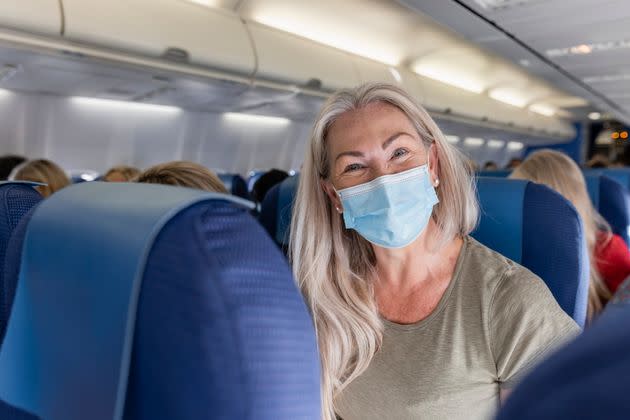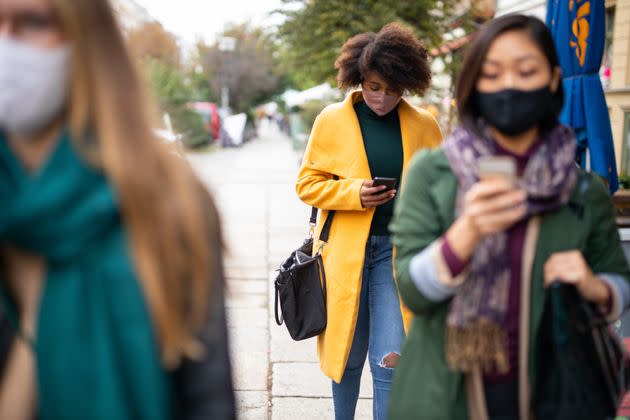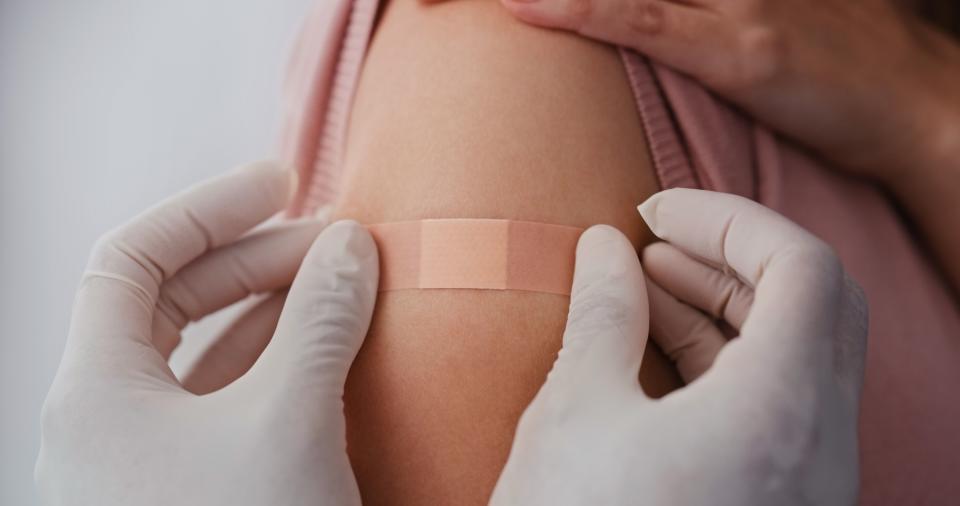Plan B: What Is It And When Will It Start?
Watch: What are the 'Plan B' rules?
Prime Minister Boris Johnson is once again under pressure to enact plan B as the new Covid variant, Omicron, is taking hold in the UK.
Downing Street has already introduced mandatory face masks on public transport and in shops, while tightening up the rules around international travel. These rules will be reviewed shortly before Christmas.
But the government has stopped short of introducing its so-called plan B, which would involve bringing back guidance to work from home and vaccination passports.
Downing Street has also rejected the suggestion of any lockdowns in the near future. Instead, it is focusing on the booster vaccine rollout, despite growing worries that more needs to be done to curb Omicron.
What do NHS representatives want?
Back in October, the NHS Confederation’s CEO, Matthew Taylor, told BBC Breakfast action needed to be taken immediately as the health service was already under “immense pressure”.
He said: “We need to measures now, like wearing masks in crowded places, avoiding unnecessary indoor meetings, working from home where you can.”
The confederation wanted face masks to be mandatory in a range of settings, not just at the shops and public transport, vaccine certificates to be put into use, increased public communications and more home-working where possible.

Without changing our current tactics, the UK will “stumble into a crisis” this winter unless the government’s backup strategy or plan B is enacted.
There are now fears that the Omicron variant will only exacerbate the problems the NHS is already facing from Covid cases.
Following the discovery of Omicron, Dr Layla McCay from the NHS Confederation explained the concerns hanging over the service.
She said: “Health leaders are already very worried about what winter will bring to the NHS as they are seeing record levels of demand for their services including rolling out the vaccination programme.”
President of the Royal College of Emergency Medicine Dr Katherine Henderson also warned The Times that “an extra push” on the services, triggered by the variant, could put health workers in a “very, very difficult position”.
Watch: Sajid Javid confirms community transmission of Omicron variant in the UK
What is plan B?
The government has maintained that a lockdown would only be implemented if the NHS is under significant strain during the winter months.
Plan B would mean involving more social restrictions, but would still allow people to get out and about, compared to national lockdown.
Yet the government is still rejecting the idea. England has scrapped the idea of Covid passports for now but Wales and Scotland has already introduced them for large events.
All those aged 18 and over visiting certain venues would have to be fully vaccinated as well.
When plan B was first suggested, the government explained: “The precise settings will be decided at the time.”
Pressure on Downing Street is rising, and senior ministers like health secretary Sajid Javid have admitted they will start wearing face masks in the Commons.
Yet, deputy prime minister Dominic Raab said on Tuesday: “We don’t think plan B is required. Why? Because of the success of the vaccine programme.”
Why is the government resisting calls for plan B?
According to POLITICO’s Playbook, the government’s Covid task force looked into introducing plan B for just five months, starting from November 2021 and ending in March 2022.
Yet the Treasury has also warned Johnson moving to plan B would cost the economy between £11 billion and £18 billion in the months leading up to March 2022.
This is the equivalent of more than £800 million per week. The loss will stem from the millions of people who will be going back to working from home rather than going to the office and going out to buy lunch or other food for their commute.
Does this mean there will there be a winter lockdown instead?
With 89% of people over 16 having had both doses of the vaccine, the harsh step of a winter lockdown was looking a lot less likely until the emergence of the Omicron variant.
Earlier in the year Kwasi Kwarteng, the business secretary, “categorically ruled out” another lockdown and said the government does not want to go back to the most severe restrictions.
It did seem the type of lockdown we’ve all become used to would only be used now as a “last resort”. People close to Johnson have also said he’s “dead-set” against the idea of another lockdown, although Politico points out “we’ve heard that one before”.
The emergence of Omicron has made everything more uncertain, too.
Many think that unless plan A is dropped and firmer action is taken now, a lockdown is inevitable further down the line.
Plan A relies heavily on the Covid vaccines
The government is, for the most part, still sticking to its plan A.
Booster jabs have become a priority and have been rolled out to everyone over the age of 18.
From mid-September, a third dose was available to over-50s, healthcare workers, and people with a higher risk of infection to “strengthen the wall of defence”.
But from Monday, the gap between an individual’s second and third jab will be shortened to just three months.
Downing Street wants all double-vaccinated adults to have been offered their third dose by the end of January, although the government has complained not enough people are coming forward and taking up the booster.
Downing Street has also accepted the recommendation by the UK’s chief medical officers for children aged 12 to 15 to be offered a first dose of the vaccine, and will soon be offering the second dose to this age group.
The UK vaccines watchdog has recommended those aged 16 and 17 get their second jabs too, and that a fourth dose is made available to any one who is immunosuppressed.
Testing
If you’re needing to get a PCR test over the winter months, these will continue to be free under plan A.For anyone who needs to self-isolate, the government plans to continue providing financial and practical support to those who are eligible for it.There are new specific isolation rules for people who have been in contact with positive Omicron cases as well. They will have to isolate for 10 days even if they have been fully vaccinated.

More funding for the NHS
Over the next six months, £5.4 billion will go into supporting the NHS, including £1 billion to help with backlog caused by Covid.Health secretary Javid has also introduced mandatory vaccinations for NHS staff by April 2022, while jabs for social care workers became compulsory from November 11.However, this has raised concerns that the already flagging health and social services may become even more depleted as workers might choose to leave their jobs instead of getting vaccinated.‘Largest ever’ flu jab campaign
The government will not just be encouraging people to get their Covid jabs this winter but to also get their flu jab if they’re eligible. Speaking in parliament, Javid says it will be “the largest ever flu campaign this country has ever seen”.This year, free flu jabs are available for secondary school children and people aged between 50-64 years. As before, primary school children, over-65s, vulnerable people and pregnant women are eligible for the jab.

Social life
Precautions like meeting outdoors and wearing a face mask in public should still be a priority when it comes to getting together with other people. It’s important to ventilate indoor spaces as well to prevent Covid particles building up.And when it comes to travel, the government has brought back restrictions around pre-departure tests for people arriving into the UK.All travellers over the age of 12 will have to show proof of a negative PCR or lateral flow test, even if they are fully vaccinated, before setting off. This test must be taken two days before departure for the UK and private test providers must be used.People have to self-isolate until the received a negative PCR test result on day two after arriving back in the UK.The government has stopped short of telling anyone to cancel their Christmas parties, but has urged everyone to proceed with caution and get a test beforehand.
This article originally appeared on HuffPost UK and has been updated.

 Yahoo News
Yahoo News 




